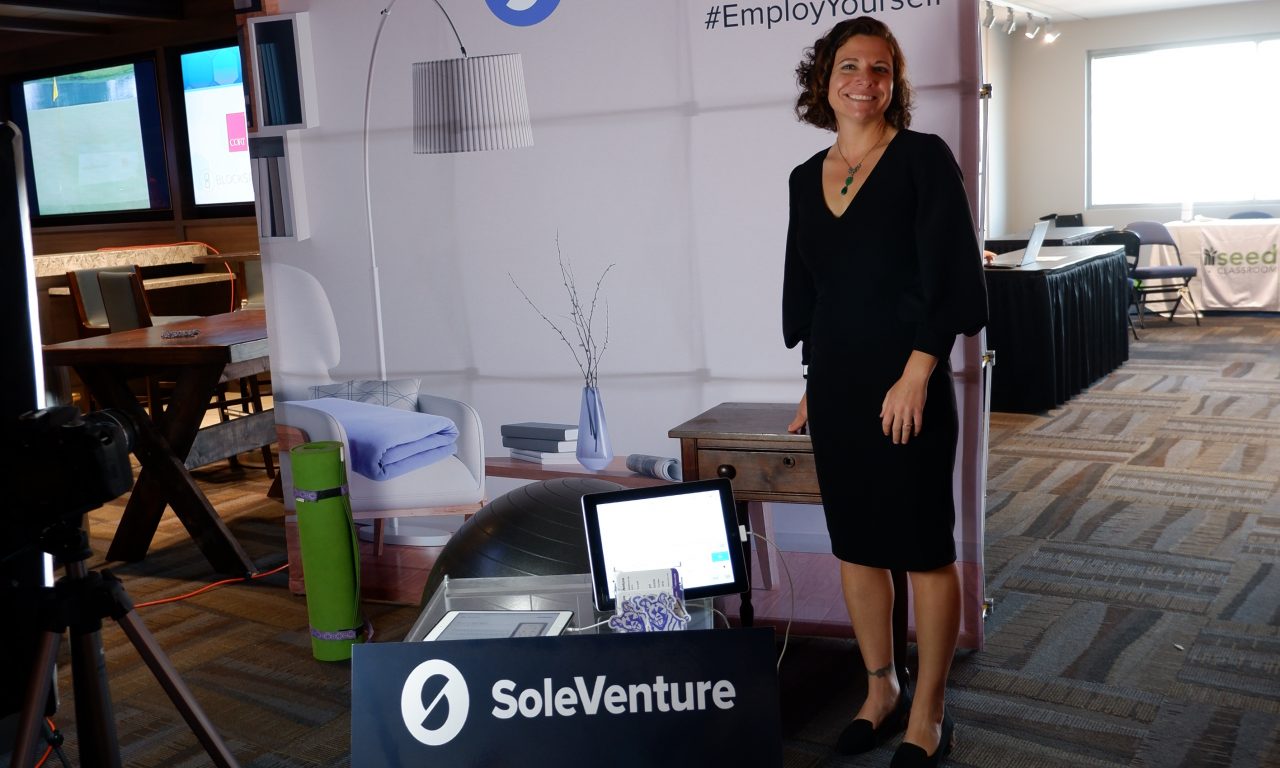The future of labor in America is freelance. It’s estimated that by 2027, over half the US workforce will be freelancing. When this happens, “all of these people are going to be losing their benefits, all of them are going to be losing the support that they need in order to grow their businesses,” says Eve Epstein, founder of SoleVenture , a startup focusing on the back end of the freelance economy. SoleVenture focuses on the things most freelancers don’t want to think about – healthcare , tax savings, or registering as a specific type of business in order to get the most out of tax credits. Not everyone is prepared to consider these things realistically once they begin taking on contract work, whether it’s full or part time. When speaking to Epstein at the 2020 Synapse Summit in Tampa, she explained her inspiration for SoleVenture. Having graduated from law school at the height of the recession, she saw the workforce changing rapidly. “The whole business model of payroll companies and the PEO (Professional Employer Organization) industry is to help small businesses have the leverage of a large company,” says Epstein, “We’re not doing anything for independent workers, and that’s the majority of the workforce, so we need to figure out a solution for them.” Partnering with fellow attorney Robyn Rusignuolo, who also had a background in HR, they created a virtual dashboard to help freelancers manage business expenses, ensure compliance with labor regulations and enroll for benefits. They are still currently raising money for the venture, and offering an invitation-only free trial, as their waitlist is over 20,000 strong. After a freelancer enrolls, the machine learning of the virtual dashboard begins to better understand how the individual runs their business and suggests potential clients for them. Various stakeholders paint the vision of freelancing differently, with some expressing that it’s about the freedom of an individual to choose when and how they work. Forbes stated that, “In one reflection of freelancers’ satisfaction, 51% said no amount of money would lure them to a traditional job.” SmallBizGenius reports that, “Data from the latest Gig Economy Index shows that around 40% of US workers generate 40% of their income by working independently. This shows how much people depend on the gig economy financially, with a lot of people forced to do gig work in addition to their regular job to make ends meet.” The difference between being forced to do something versus having the freedom to do it is changing the psyche of the American worker. Upon asking Epstein what she thinks of the future of labor in America being freelance, she stated, “We all value independence and flexibility. The purpose of this is to ensure that no one is taken advantage of and we have as many protections as possible, so whether we’re dependent on an employer, dependent on the government, we’re dependent on a spouse for those things – there’s always going to be some level of dependency – […]




